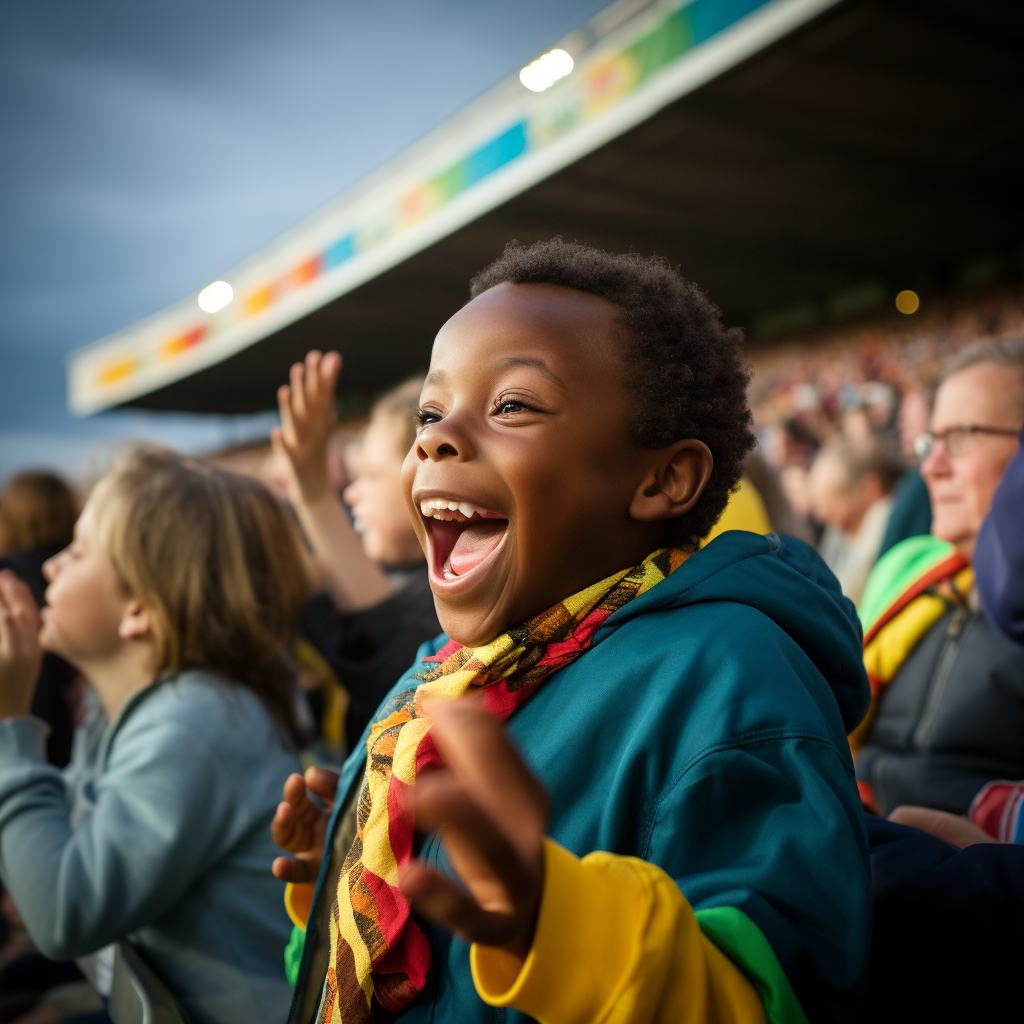Enjoying Sporting Events with Autism
by FAU CARD | Thursday, Aug 17, 2023
Enjoying Sporting Events
 Good Sports! Planning Successful Sporting Events for Autistic Individuals
Good Sports! Planning Successful Sporting Events for Autistic Individuals
Attending a sporting event can be an exhilarating experience. But for persons with autism, these events can be overwhelming and confusing. Let’s explore some strategies to help individuals with autism more fully enjoy sporting events.
Preparing for the Event
Choose the right event. Consider the individual's interests, sensory preferences and the length of the event when making a selection.
Research what accommodations might be available at the sports venue. Some stadiums or arenas offer early access passes, allowing individuals to enter before the crowd gets too large or too noisy. Some venues may offer special parking close to the venue, which may reduce anxiety associated with navigating crowded parking lots. Find out if there are quiet areas available for the autistic individual to decompress if overstimulated.
Familiarize the individual with autism with what they will see and do in advance. Share photos and watch videos to help them visualize the experience. If the event is nearby, see if you can visit the venue ahead of time when there is no event in progress.
Visual Supports can help autistic persons navigate events more successfully. Consider creating a social story that walks the individual through each step of attending the sporting event, reducing uncertainty. You may wish to develop a visual or schedule with pictures or words to take to the event so the individual will understand what comes next and when the event will end.
In a crowded setting, it is easy to get distracted or lose focus. If the autistic individual has communication or intellectual limitations, make a plan on what to do if you become separated at the event (texting or calling, using an emergency information card). Take a picture of the autistic individual on your phone just before the event so if needed, you can quickly show venue staff what they look like and what they are wearing.
Sensory Strategies
Sensory overload is a common experience for individuals with autism. In a bustling sporting event with blaring music, loud cheers, flashing lights, and crowded spaces, sensory overload can escalate rapidly. Prepare a sensory kit with items to help the autistic person cope. Options for managing auditory overload include earplugs and noise-canceling headphones. Fidget toys or tablets can provide individuals with an “escape” from overstimulation.
Occasional walks or other movement breaks can help individuals who struggle with sitting still.
Try to get seats that are on the aisle or in the back of a section if the individual will need to get up frequently.
Be flexible on how long you stay at the event. Some persons with autism may need to build up their tolerance of crowds over time.
Attending a sporting event can be a thrilling and uplifting experience for individuals with autism. By incorporating strategies that support the autistic person’s communication and sensory needs and their understanding of what to expect, we can empower them to fully enjoy the excitement and fun!